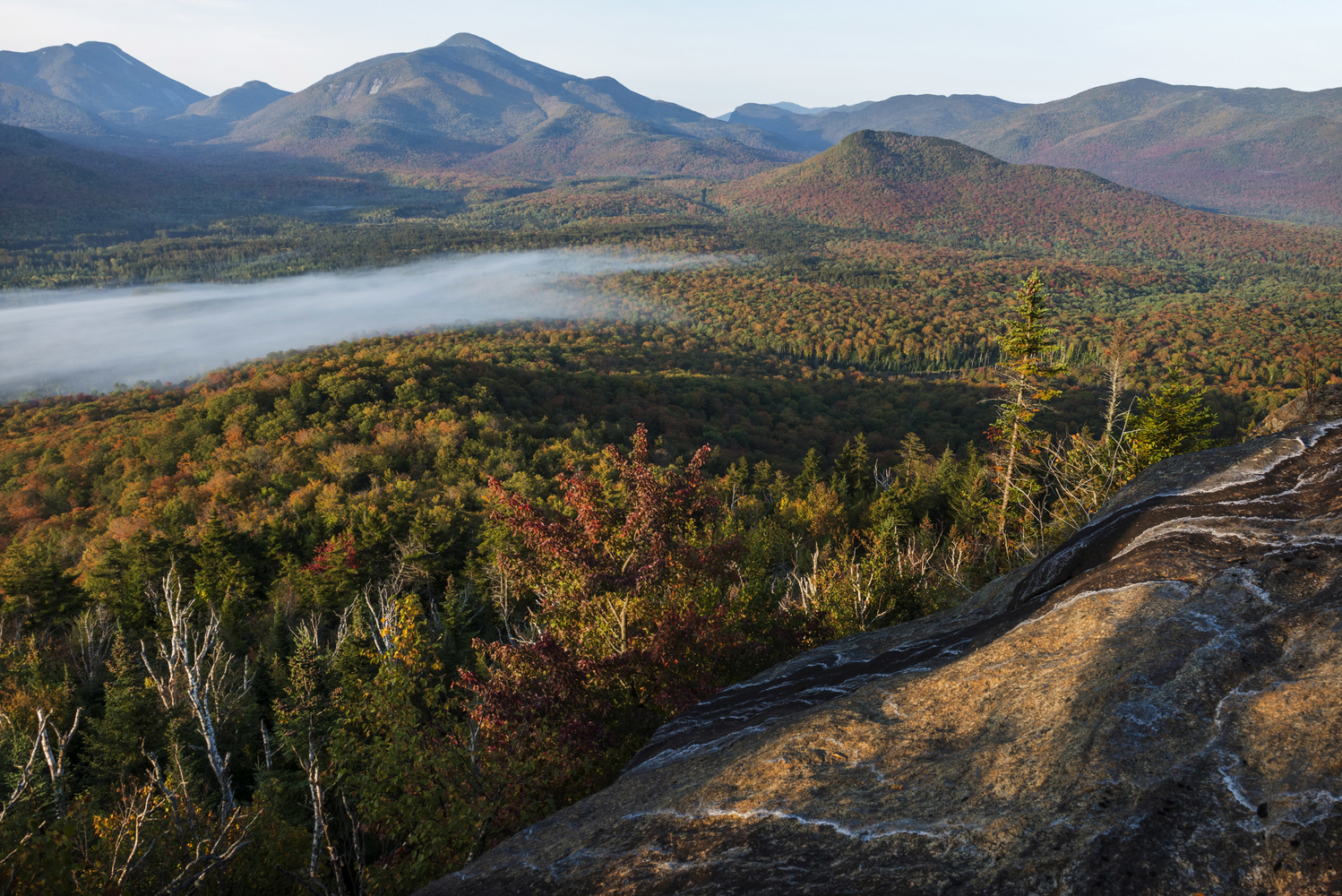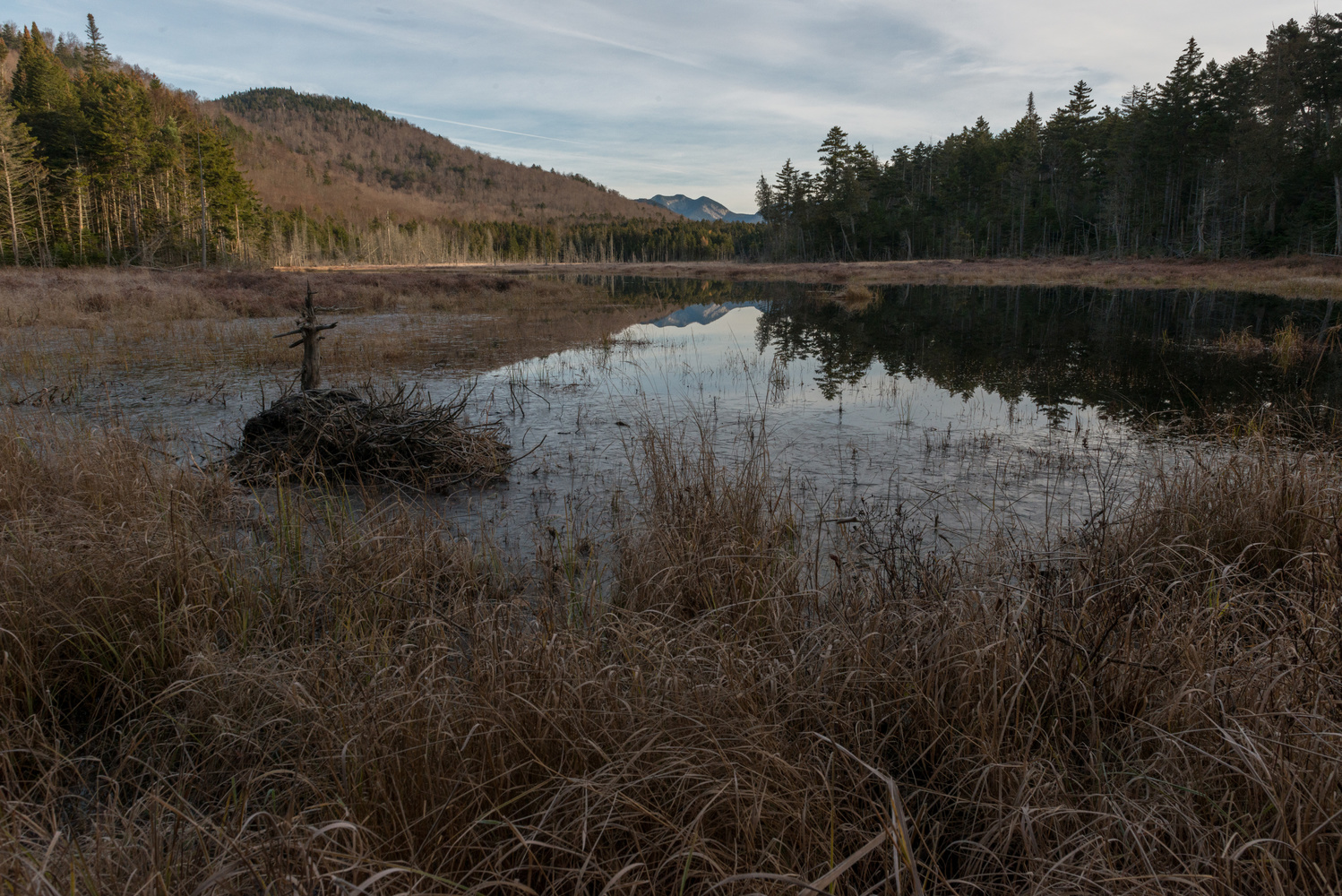Wider was always better when I first began photographing landscapes. As an amateur photographer and outdoor enthusiast, all I wanted to do was cut down on weight in my pack when heading off on long, adventure-filled days in the mountains. But slowly my focus shifted from going out to hike, while maybe capturing beautiful moments, to fully focusing my time and attention on capturing beautiful landscapes. Hiking became the mode of transportation while photography became the reason for heading to the mountains.
I eventually realized I was only limiting my artistic vision by not bringing a telephoto lens with me to capture landscapes. Plus, more lenses, which means a heavier pack, means I'll have a better workout while hiking, right?
As soon as I started using my Nikon 70-200mm f/2.8 for landscape photography, the way I viewed the world completely changed. Rather than focus on and capture the grand, panoramic views of sunrise from a mountain's summit, I could now focus my attention solely on one or two peaks that contributed to the entire view. I began to take note of the way light fell on one specific mountain in the distance, rather than the way it fell on the entire valley, lake, or mountain range in front of me. Using the telephoto lens helped to drastically refine my compositions by making them less busy and more concise. As an example, compare the images below. Which landscape photographs do you think are stronger: the wide angle or the telephoto?
I like to think of the idea as capturing a group portrait versus a solo portrait. The group shot generally only shows everyone in the scene, but the solo portrait generally can adequately show specific emotions and physical features of one person. Like taking intimate portraits of one or two people, I could now do so with mountains and nature.
This is not to say I still don't use a wide-angle lens for my landscape photography. Each time I head outside is different; every situation and location has its own factors, which calls for its own photographic process. Sometimes the only way to adequately capture a scene is to photograph its entirety using a wide-angle lens. But more often than not, the first few images I capture in the field are with a telephoto lens.











For me, the biggest benefit of the telephoto is the compression. I love being able to bring background elements closer; I think it can really increase the drama of a landscape image in certain situations.
I always thought the same! But then I recently learned compression actually has to do with the distance between the subject, background and camera. For example, if I take an image of a person with a wide angle lens, I would want to get pretty close to them. But if I put a telephoto on my camera, I'm probably going to have to take a few steps back. In addition to my focal length changing, so is my distance to the subject. If I took a portrait with a 24mm focal length, but then cropped the image in post to be the same as a 70mm focal length, the compression of the wide angle and telephoto lens is equal. Check this out for more: https://fstoppers.com/originals/lens-compression-doesnt-exist-147615
Haha, yes, I know that. It's shorthand for saying I sometimes prefer the perspective distortion afforded by using a longer focal length at identical field sizes. ;)
The consequences are to evil to continue repeat this shorthand.
For example, this is the main reason of people do not accept that 50mm on M4/3 has the same perspective as 100mm on FF.
AGREE
I always use telephoto for landscape. So much better
Interesting article! Any particular reason you went with the 70-200 f/2.8 over the f/4 version (for landscapes)?
Probably just the one he had. I used to have a 70-200 f/4, but needed a faster one for some situations. At first I wanted to keep the f/4 for having a lighter lens, but ended up using the 2.8 more and sold the f/4. Also, if speed is not necessary, a 70-300 might be an even better choice.
I definitely agree. I find that I use the lower aperture way too much to give it up purely for the weight aspect. I haven't been able to personally test the f/4 version, but I've heard it is a tad bit softer in the corners - something I can't sacrifice on my D800 where lens quality is super important.
No reason in particular for the f/2.8 over the f/4 for landscapes. I do, however, shoot sports, weddings and portraits as well, and bought the f/2.8 for this reason. I value the f/2.8 in these situations! Since it's the one I had, it's the one I use. But the lower aperture never hurts with landscapes, either! I've photographed the night sky numerous times using the 2.8 aperture. But I could definitely make it work with f/4, as well! If someone was going to buy the 70-200 just for landscapes, and nothing else, I would recommend the f/4 version because of it being lighter weight! :)
Yup, makes sense. Wasn't sure if you only photographed landscapes or not. If so, f/4 makes more sense - lighter and cheaper! Great images and insight. As a fellow landscape photographer, I have to admit that I always reach for the wide-angle lens first. Definitely need to try more telephoto comps.
Thanks! I agree - if I was purchasing a telephoto strictly for landscapes I'd definitely go with the f/4! And I agree, it's hard to break from the mold once where in one, but can also be a fun challenge to get out! Try bringing only one lens - a telephoto - next time you photograph a landscape. :)
It can also be a product of where you photograph. Some places just don’t have layers of visual interest like these mountain scene photos in your examples that make the images work.
I totally agree! Some places have incredibly strong foreground elements, which would only scream for a wide angle lens. It's usually situational. But it can also be a fun challenge to shoot a landscape with only one specific focal length range. :)
It's funny how people tend to stress their point/favoritism towards the ultra-wide or the telephoto, when in reality the selection should be made depending on your scenery.
Some scenes lend themselves to a "specific" range of focal length, some can be captured magnificently with both.
No need to go out to the extremes and MOTOs such as "Why I only use telephoto for landscape photography" or "why I only use ultra-wides for landscape photography".
Thank you for your comment! I definitely agree that the scenery, in the end, is the deciding factor for how I'll capture a landscape. Like I mentioned above, if the foreground elements are way too solid to pass up, compositionally, then I'll definitely use a wide angle lens to capture the entire scene. I guess the point I might have missed in my article is that the telephoto lens makes me see the world differently. By knowing I'll be using the telephoto first, I'm automatically gearing my mind to think in terms of that focal range, kind of like forcing myself to see in black and white or color. But if I'm hiking or driving to a spot with the telephoto focal length in mind, but the foreground/scenery ends up screaming for an ultra-wide, I'll without a doubt toss the ultra-wide on my camera and probably won't take it off. :)
Well said.
Focusing your "mindset" on something isn't bad, as long as you don't kill your extra senses for wider compositions completely.
I totally agree! It is definitely important to keep an open mind when in the field. :)
The world needs more telephoto landscape shooters. I'm really sick of everything being shot at 11-14mm these days... :-P
Couldn't agree more!! Would love to see in the comments a telephoto landscape of yours if you have one! :)
Nikon 24-120mm @ 100mm, ...one of my all-time favorite photos. I don't know if it's actually a particularly impressive image, but the memory of traveling all alone through this winter wonderland, with a storm chasing me over a mountain pass, and making the decision to pause for this photo... I'll always remember the moment, and this photo really helps to bring back the sense of beauty and wonder.
Awesome!! I love the tonal contrast between the black trees and white environment. I love hearing the story behind the image. I'm glad you stopped to take a pic!! Thanks for sharing! :)
I am glad I ran into this article. I have a Canon 28-300mm f/3.5 lens and I was beginning to wonder whether I should get rid of it.
I intend to travel a lot and shoot landscapes (currently doing it, but so far there is nothing that require more than 70mm or UW) and so I think I will keep the 28-300mm (especially since I already own it).
Awesome, I'm also glad you ran into this article! :) You definitely should keep it, at least try it a few times for landscapes before selling it. What do you mainly photograph?
The place I live (UAE) is not full of rich landscapes and deserts doesn't require telephoto (at least the ones I have shot so far).
I shoot people (usually I won't publish them) and nature (I selectively publish them on 500px). I have taken photography a bit serious after shooting for 5 years (finally) and I hope things will improve (not gonna let it go till it does).
Thanks for the response.
Nice pic!! I definitely think it'd be an interesting challenge for you to only head out with a telephoto next time you're shooting the landscapes where you live. I think you'll be happily surprised with the results, and the different way you view subjects you normally see in a wide perspective.
My landscapes photos are now limited do side road pull overs, i really have been think about an telephoto lens.
I definitely think it'd be worth the investment ... this image was captured on a side road pull over ;)
For me, I don't have a go to lens. I use telephoto or wide angle depending on what I want to achieve